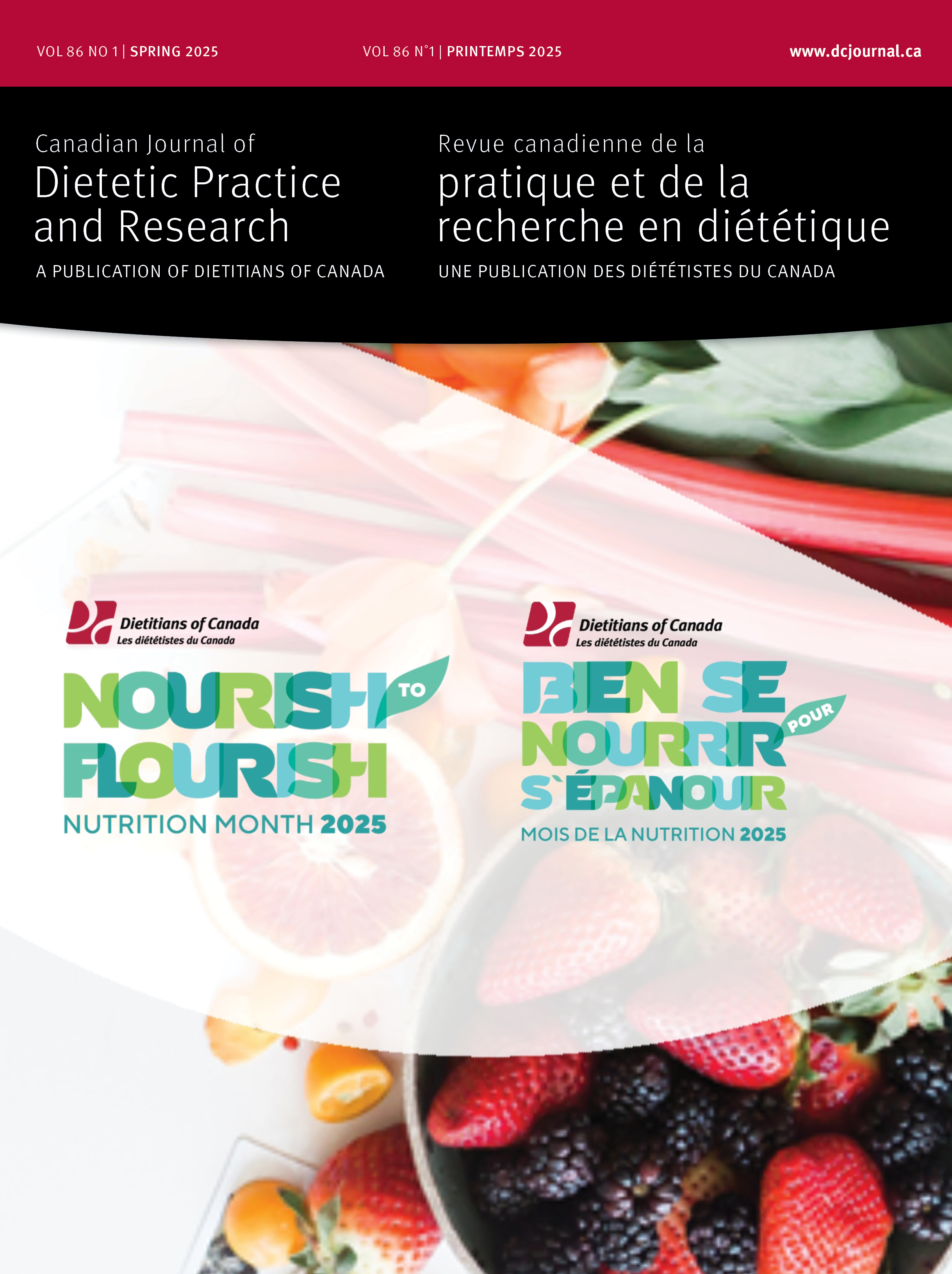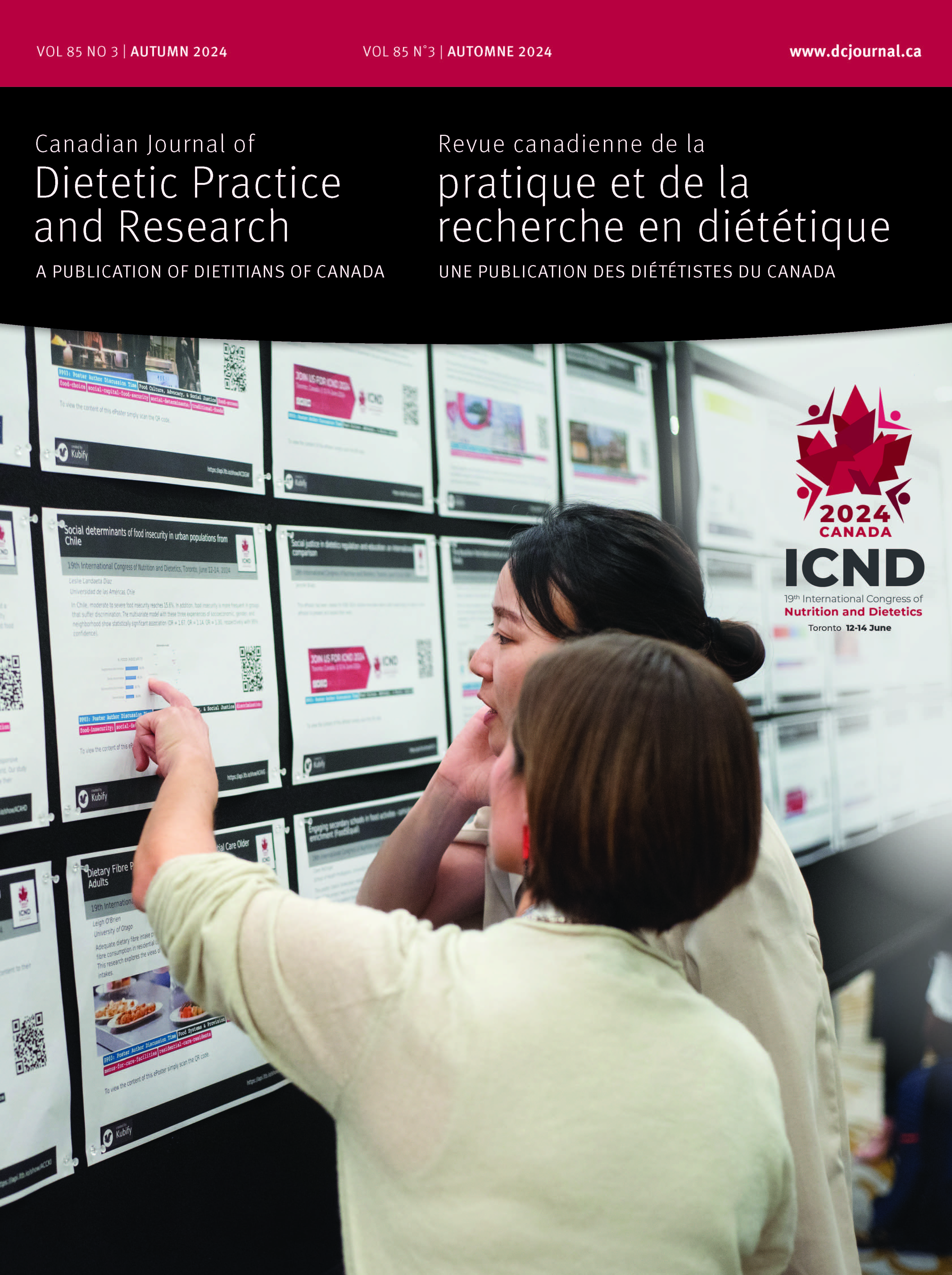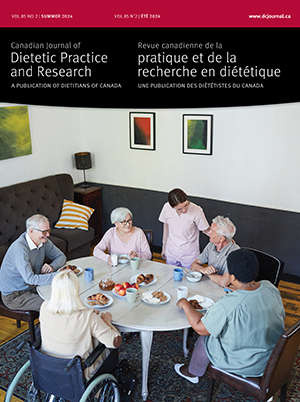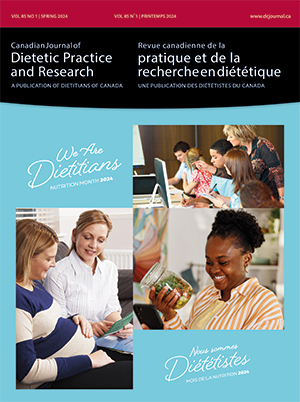Volume 64 • Number 3 • September 2003
Perspectives in Practice
Each year in Atlantic Canada, a dietetic internship forum is held to inform potential dietetic interns of internship opportunities. This paper provides information to those planning similar events, and seeks to enhance knowledge of students’ information-seeking strategies in the internship selection process. The objectives of this study were to 1. profile students who attended the 2000 forum, 2. determine their intentions, 3. determine how – and if – the forum influenced internship selection, and 4. determine overall satisfaction with the forum. A 23-item questionnaire was used to collect data from 52 forum participants (100% completion rate). Results indicated overall satisfaction with the forum. Prospective interns seek, use, and value information about potential training choices, particularly when that information concerns programs outside the Atlantic region. Participants indicated that the forum helped confirm or alter pre-forum perceptions of their first and second internship choices. The results suggest that alternative types of presentations, which would include out-of-region internship opportunities, should be explored to meet students’ needs for information better.
Report
The purpose of this exploratory study was to further our knowledge of how the concept of prior learning assessment is being operationalized within dietetic internship programs. We reasoned that such knowledge would allow us to determine if the profession is capitalizing on associated benefits. A six-item, multi-part, self-administered survey was faxed to all internship directors (n=42). Results indicate that although programs are aware of prior learning assessment, its application is not consistent. Barriers include procedural, implementation, and philosophical issues. The study results provide information for educators and policy-makers to understand better the factors that influence prior learning assessment implementation and usage. Information related to current usage and perceived barriers can assist in the development of a professional prior learning assessment philosophy, which can guide decision-making, development, implementation, and evaluation of new and existing prior learning assessment initiatives.
Public Policy Statements
Nutrition plays a critical role in the management of hepatitis C. Dietitians of Canada has developed comprehensive, evidencebased guidelines to familiarize health care providers with effective nutrition care for the growing number of Canadians infected with the hepatitis C virus. The complete guidelines and two supporting educational fact sheets are available for downloading from http://www.dietitians.ca/resources/HepatitisC_Guidelines.htm. The guidelines and fact sheets are available in both English and French. The guidelines contain the full text, practice essentials, references, and extensive appendices with practical tools to assist educators in promoting nutrition to persons infected with the hepatitis C virus. Reprinting or photocopying of the document is encouraged provided the source is acknowledged. In addition, an on-line education course is available for health care providers and is available on www.dieteticsatwork.ca. These guidelines are directed to all health care providers who are in a position to offer nutrition-related advice and guidance to persons infected with the hepatitis C virus, in all stages of the disease. A national advisory committee comprised of leading authorities in Canada steered the development of the guidelines. The guidelines are based on the best information available at the time of publication; where scientific evidence was not available, best-accepted practice is presented.
Recognition
OPEN ACCESS
Practice Guidelines: Pedantic Pontification or Pragmatic Progress? 2003 Ryley-Jeffs Memorial Lecture
Development and use of practice guidelines is one strategy to assist health professionals in translating research into practice. There has been a significant growth in the number of practice guidelines developed, with the increased focus on justifying health care costs and demonstrating outcomes. Quality and influence on established practice, however, has sometimes been lacking. Recognizing both the importance of practice guidelines and some of the controversies surrounding their quality and use, Dietitians of Canada convened a task group to make recommendations on future development. They reviewed the practice guideline programs of others and identified the key elements needed to ensure any dietetics-produced guidelines would be credible, feasible and applicable to clinical counselling, administration and community health promotion. In this memorial lecture, the chair of that task group briefly reviews the history of dietetic practice guidelines, new innovations in systematic review and consensus development methods, and specifically the Delphi process used to develop a new Dietetic Practice Guidelines Framework. The 34 elements of the framework direct overall management of the guideline development process, including topic nomination, systematic literature review, group judgment, and pilot testing.










